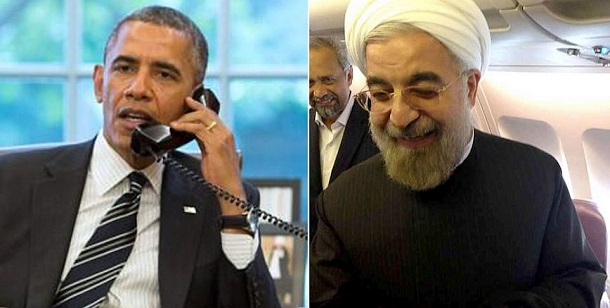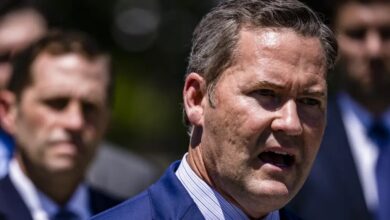“I just talked on the phone with President Rouhani”: This historic announcement by US President Barack Obama gives hope for an agreement in the nuclear dispute. The question remains: How serious is the Iranian head of state?
In US President Barack Obama’s environment they had initially set a handshake with Iran’s new president Hassan Rouhani. Somewhere on the edge of the UN general debate in New York. It would have been a symbol that both sides are serious about relaxation. It did not happen. Because of the “own dynamics at home” is a such a meeting Rouhani was probably “too complicated”, it was later called from the White House. Rouhani himself made it clear that it may be too early for such a gesture.
The exchange between Barack Obama and Hassan Rouhani could reflect a major step in resolving global concerns over Tehran’s disputed nuclear programme.
Mr Obama said he had a constructive conversation, adding: “While there will surely be important obstacles to moving forward and success is by no means guaranteed, I believe we can reach a comprehensive solution.”
The fact it had been so long since American and Iranian presidents had spoken to each other reflected the “deep mistrust between our countries”, the US leader said.
But it also indicated the opportunity for moving forward, he went on. “I do believe there is a basis for a resolution,” he said.
Both leaders will now direct their teams to work quickly to find an agreement after the first direct verbal communication between the nations’ presidents since the 1979 Islamic revolution.
Earlier, Hassan Rouhani said he hoped talks with the US and other world powers over its nuclear programme will lead to results in “a short period of time”.
He said Iran would present its plan for a resolution to the nuclear issue at discussions with the six countries scheduled for Geneva on October 15 and 16.
The six are the five permanent UN Security Council members – Britain, China, France, the United States and Russia – and Germany, known as P5+1.
Iran has insisted its nuclear programme is a peaceful attempt to generate electricity but America and its allies including Israel have long demanded a halt to Tehran’s uranium enrichment, fearing it could secretly build nuclear warheads.
Uranium enriched to low levels can be used as fuel for nuclear energy but at higher levels it can be used to make a nuclear weapon.
Iranian President Rouhani vowed his country would not build a nuclear bomb, adding his government would be transparent and had the backing of authorities at home to handle the nuclear issue.
And earlier this week, he said he would like to see a deal with world powers in three to six months.
In his latest comments, he said: “We say explicitly that we will be transparent; we say explicitly that we will not build a bomb. Through the P5+1 we want to provide even more assurances.”
He added: “I think that any result this government reaches, it will have the support of other powers (power centres) in Iran. On the nuclear issue, the government has total discretion.”
It comes after Iranian foreign minister Mohammad Javad Zarif met US Secretary of State John Kerry along with representatives from the other P5+1 powers. That was followed by a brief bilateral meeting between Mr Zarif and Mr Kerry.
The two sides said the tone was positive but they remained cautious about resolving the long-running stand-off over Tehran’s nuclear programme.
The Iranian president, who came to power last month, said he hoped nuclear talks “will yield, in a short period of time, tangible results” and the atmosphere was “quite different from the past”.
But he also slammed “illegal” sanctions crippling his country’s economy, saying they were just a means by some nations to pursue a “short-sighted” foreign policy.
Mr Rouhani and Mr Zarif, both in New York this week to attend the UN General Assembly, have said they are eager to clinch an agreement quickly that could bring relief from sanctions.
The sanctions have slashed Iran’s vital oil exports by more than half, restricted its international bank transfers, devalued its currency and sent inflation surging.
On Friday in separate talks, Iran and the UN nuclear agency IAEA held “constructive” discussions and made plans to meet again on October 28, adding to momentum for a negotiated end to the nuclear standoff.
The talks would be nearly two weeks after the P5+1 discussions, as European Union foreign policy chief Baroness Ashton called it an “ambitious timetable” to address Western concerns.
[adrotate group=”14″]

